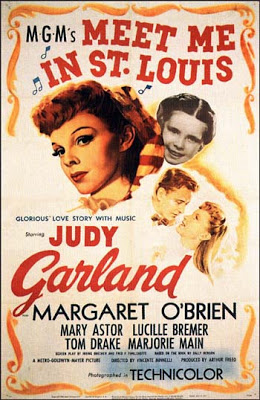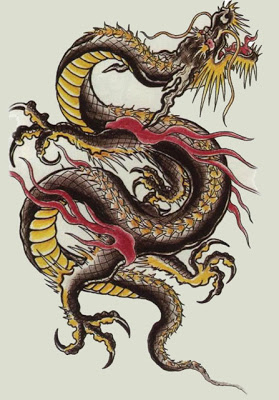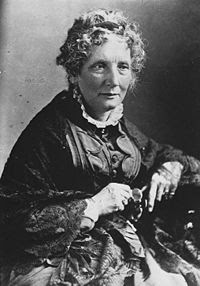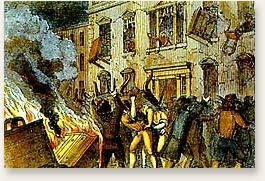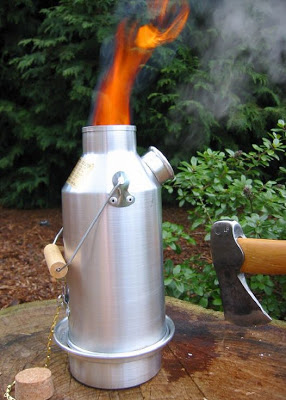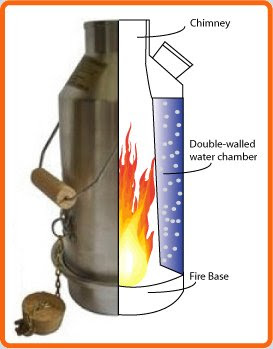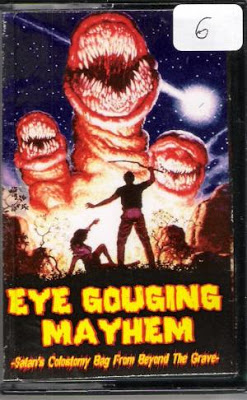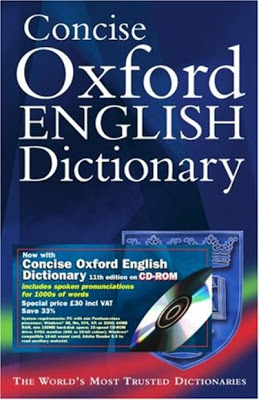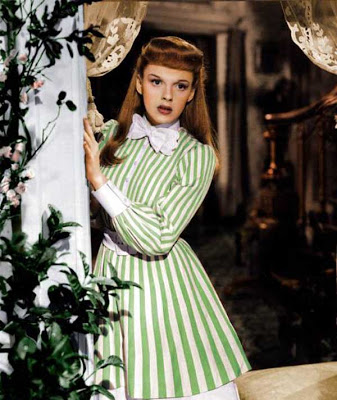
Judy Garland Singing "Have Yourself a Merry Little Christmas" in Meet Me in Saint Louis.
“Make no mistake, it's not revenge he's after. It's a reckonin'.” – Doc Holliday discussing Wyatt Earp in Tombstone, 1993.“Have yourself a merry little Christmas” -- Vignettes from a Reckoning.Judy Garland was very popular that year. Someone had re-released a collection of all the best songs from the singer’s heyday, digitally re-mastered and enhanced by some new process. “Somewhere Over the Rainbow” went to the top of the charts, its songs of love and longing newly popular in a time of economic chaos and impending war, much as they had been in a similar time in the Thirties and Forties.
As the end of the year approached, “Have Yourself a Merry Little Christmas,” first sung by Judy in 1943 in the middle of the worst war of the Twentieth Century, was playing everywhere – the radio, elevators, and all the new methods of delivering music on demand.
Have yourself a merry little Christmas
Let your heart be light . . .In the end, Sam Montrose convinced Wiley Fortner. They did San Francisco first.
Jessica Hartnet stopped for some French bread on her way home from a long day at the federal building. Unmarried, frumpy, with few things that interested her beyond her career, she lived alone. She was humming Judy Garland’s Christmas carol when she disarmed the security system and came in her apartment front door. Sam Montrose was waiting on the stairs to the right of the door in the dark. The moment she closed the door, his hand clamped across her mouth and stifled the scream, the Welrod stuck in her right side angled at her heart. She struggled briefly, but Sam’s iron grip and the Welrod persuaded her to stop.
Mike had told him to simply shoot her in the head without preamble, but Montrose couldn’t do it. He had to let her know why she was dying, forensics be damned.
Jessica Hartnet was so frightened by this hard apparition that had come from nowhere that her bladder let go. She didn’t really hear Montrose the first time when he asked her name in confirmation. He didn’t have to, of course, he had memorized her face. But he wanted her to know this wasn’t random. It was a reckoning.
So he said it again. “Miz Hartnet?” This time she nodded as well as she could under Sam’s left hand.
“Bill Twombley sent me.”
Her eyes grew wide, and something exploded her heart. The last thing she remembered before the dark was a lizard hissing. The head shot was superfluous, but required by protocol.
They didn’t find her body until Tuesday because, frankly, nobody missed her.
About three hours later, Mike Smith shot Thomas Oliphant in the head without a word as he lay sleeping that night. No explanation was necessary as far as Mike was concerned. He too was unmarried and had made no weekend plans. He also was not missed.
So much for San Francisco.
Next year all our troubles will be
out of sightSam Montrose wanted to tell Harriet Farqhuar of the Fish and Wildlife Service why she was dying too, but it was not to be. Like clockwork, she ran down near the shore of Whidbey Island every morning by the same predictable path. So it was on Saturday. The window of opportunity for the shot was narrow and was decided by the location of a particular cleft in the rocks. The attorney who cared more for wolves than people never heard or saw a thing, the shot coming from behind as she listened to Judy Garland on her iPod. Although her boyfriend reported her missing, they didn’t find her body until Wednesday, somewhat crab-eaten, the weather having been cold and foul, which discouraged passers-by.
Have yourself a merry little Christmas
Make the yule-tide gaySam Montrose had been right. They were able to do Denver Saturday night. Well, actually, it was early Sunday morning. People are all creatures of habit. They usually go the same places at the same times for the same reasons. Thomas Dunphy, for example, was in the habit of closing the bar at the Shamrock and Crown Tavern on Saturday night and weaving his way home to his loft apartment in downtown Denver. He staggered into the private elevator and, just before the door closed, Sam Montrose stepped in.
“Hey!” slurred Dunphy, “Whathehellyouthinkyerdoing?”
Montrose smiled.
“Relax, Tom, you just looked like you needed some help.”
“Huh?DoIknowyou?”
“Sure, Tom. I’m Sam Montrose. We met at the ABA seminar here last year. You said to drop by if I ever needed anything.”
The elevator stopped, the door opened. Judy Garland was singing on the Muzak.
“Idon’t’memberyouman. . .Youalawyer?Igottagetsomesleepnowcallmetomorrow.”
“OK, Tom, let me get you in the door. You got your key?”
That was one thing, drunk as he was, that Thomas Dunphy did have. Whenever he went out on a Saturday night, he put his key on an elastic cord around his neck.
“Shuregotitrighthere.” He fumbled at his coat front.
“Here,” said Sam, “I’ll get it.”
Montrose reached in, retrieved the key and unlocked the door, ushering Dunphy into his own place.
“Thanksman,” said Dunphy, staggering as he always did toward the couch.
“No problem,” said Sam, as he produced the Welrod and shot Dunphy in the back of the head. The fed lawyer collapsed head down (what was left of his head) over the back of the couch, his feet in the air, twitching. It looked for all the world like he was dancing.
“No problem at all,” said Montrose as he turned and left the apartment, locking the door behind him. The elevator was still playing Judy Garland when he took it to the ground floor.
Next year all our troubles will be
miles awayJudy Garland was not singing when the U.S. attorney who had approved the raid on Harlan Smith’s house died by Mike Smith’s hand. As he had feared this day, Duncan Phelps had memorized the faces of the Smith brothers and he was armed with a Smith & Wesson .38 revolver in his pocket. Neither of these things helped him as he was shot in the face carrying out the garbage. He had decided not to go into work today after hearing of the killings in DC. This did not help him either. His wife, who hadn’t heard a thing, found him shortly afterward, collapsed over a trash bag. After her crying jag subsided some hours later, she realized that this would relieve her of the stress of the divorce she had planned to file. Now, she realized, she wouldn’t have to split a dime with the sonofabitch. After that insight she began sobbing again, but perhaps not so much as before.
Once again as in olden days
Happy golden days of yoreThe days, the lack of sleep, alternating the controls as they drove or flew, the tension of the kills, the expended adrenaline, the highs and lows, it was all taking a toll on them. That, plus everything so far had gone like clockwork. It was easy to get slack and despite their best efforts, they did, just when they couldn’t afford it. It almost got Montrose killed. Almost.
Patrick Michael Daley wasn’t related to THE Chicago Daley’s but he often let people make that assumption. It certainly hadn’t hurt his career in federal service. The principal legal facilitator of Operation Clean Sweep in the Midwest, Daley knew he was on somebody’s list, knew that there had been killings of federal attorneys in Washington DC all weekend, and had just heard of the death of the slightly lamented Duncan Phelps in Wisconsin. The manpower demands of Clean Sweep caused his demand for a full retinue of bodyguards be pared down to two U.S. Marshals, one of them very green, although Daley did not know that.
When he met them in the lobby, he complained, “Is this all of you?”
“Yes, sir,” said Trent Comstock, the older and more experienced of the two. “We’re all that was available. But don’t worry, sir, we’ll get you home safe. The Suburban is right outside. If you will, sir, let’s get going.”
Daley just grunted, but walked out the door with the two marshals.
The trip home was uneventful, just usual Chicago rush hour traffic in the slush and snow. The younger agent at the wheel, a young black man named Arlen White, had the radio on. Judy Garland, again.
“Turn that shit off,” ordered Daley. “I’m so sick of that song I could puke.”
White quickly punched it off. Silence reigned in the SUV, apart from the road noise, although White swore he could almost hear Daley’s temper flaring in the quiet. What an asshole, the young marshal thought.
It was well after dark by the time they got to the gated mansion. Daley produced a remote for the wrought-iron, reinforced gate. A snowplow was working this side of the side of the street, but they were well out of its way on the driveway pad.
The gate did not swing.
Daley pushed the button again.
Nothing.
Daley pulled out his cell phone to call the house just as the Chicago municipal snowplow slammed into the right back quarter panel of the Suburban and drove it violently into the brick wall that flanked the gate, half crushing the ass end of the vehicle. The fuel tank ruptured, gas running out in a river, although no one noticed it as Marshal Comstock emerged from the front passenger door, firing an MP-5 at the cab, windshield and passenger side door of the snowplow in short, controlled bursts, although he couldn’t see the driver.
That was because Mike Smith had unbuckled his seat belt instantly after the crash and leaped out the driver’s side door to the street and ran around the back. In any situation, the advantage goes to the guy who knows what’s about to happen. As Montrose pulled up in a white van from the other direction, Mike pulled the shoulder-stocked suppressed MAC-10 into his shoulder and loosed a four round burst that hit the marshal, running up his vest and into his throat and lower jaw. He was dead before he hit the ground.
Marshal White skidded across the front seat and popped out next to the falling Comstock and took four more center chest.
Daley was shouting incoherently when Mike moved up to the Suburban and emptied the clip into the glass. No glass, however advertised, is “bullet-proof.” This stuff was bullet resistant, but when twenty-two 230-grain forty-fives hit any glass in roughly the same place in the space of a few seconds, it is going to give. Thus it was that the window did not save Daley.
As Mike changed magazines, Montrose moved forward to administer the coup de grace with the Welrod. He should have made sure of White first. Concentrating on the vehicle, he didn’t even notice as the young marshal recovered from the mule kick in his chest that had almost stopped his heart through the ballistic vest he wore and raised his pistol to kill the advancing lawyer.
Mike spotted the motion by the dim glow of the entrance lights and hosed the marshal’s prone figure as he lay on his back, his pistol in the air. Arlen White died, there in the snow and slush, protecting a criminal who acted under the color of the law. He died trying to protect a man who he thought, rightly so, was an asshole. As he died -- as his arm fell down -- he loosed one last round reflexively as his brain tried to react to its changed condition. The muzzle flash ignited the gas, and the exploding vapor blew Sam Montrose back and down, skidding in the slush, the concussion taking his senses.
Patrick Michael Daley, shot three times in the chest and shoulder but not quite dead, protected as he had been by the structure of the SUV from the blast, now wished fervently that he was as the flames licked around him and burned him to perdition. Burned him, indeed, to his reckoning.
Sam Montrose came to somewhere on the other side of Midlothian. He was lying on the back floor of the panel van, rocking to and fro, his head a ringing universe of pain.
Sam groaned as the van hit a bump going into an old warehouse where some anonymous friend of Wiley Fortner had stashed their next ride.
“Hey!” yelled Mike, as he looked around the partition into the back, “You’re alive!”
Sam just groaned again.
He tried to sit up, failed, and fell back hitting his head. Oh, my aching ass, Mary, the Blessed mother of Jesus, Son of the Living God, please make this pain stop. The van came to halt and then, Mike Smith rolled back the side door.
“Hey, buddy, look, you’re concussed, okay? Don’t try to sit up just yet. You woke up right after I dragged your ass to the van and bundled you in, about fifteen minutes or so down the road. I think you’ve just been sleeping off the last few days since then. You remember waking up before?”
Sam didn’t want to move his head, he just groaned, “No.”
“All right, well, look, we’ve got a sedan here for the next leg so you can put the front seat way back and lay down more comfortably than here in this van. I’ve got some Tylenol Threes here for you. Don’t move for now, just take the pills with this soda.”
Mike dropped the pills into Sam’s mouth and provided a straw. He drank, swallowed the pills, and then drank deeply again. It was flat, it was delicious. He finished it off until the cup made a slurping sound.
“Good,” said Mike, “That’s good. Let those take hold a little and we’ll get you to the car.”
Sam slept most of the way to Saint Louis. He stayed in the motel while Mike went out and did the last job himself. “Piece of cake,” he told Sam afterward.
When Sam felt ready, they made their way home, back to the nation’s capitol where all hell had broken loose, if the talking heads were to be believed.
For once, they weren’t exaggerating.
Faithful friends who were dear to us
Will be near to us once more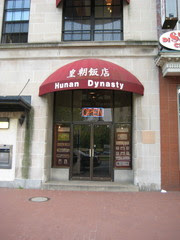 Hunan Dynasty on Pennsylvania Avenue, Washington, D.C.: Senator Charlie Schumer's favorite restaurant.
Hunan Dynasty on Pennsylvania Avenue, Washington, D.C.: Senator Charlie Schumer's favorite restaurant.Tom McCallister and Frank Han flipped for the honor of executing the White House deputy counsel. Frank Han won.
The altering of his facial lines to beat the FBI’s recognition software was old hat by now, and he elected to be his favorite assassination character, an old Chinese man. When Carleton Harmer met him in the restroom of Senator Charles Schumer’s favorite restaurant, the Hunan Dynasty on Pennsylvania Avenue, he mistook Han for one of the upscale eatery’s managers. As always that season, Judy Garland was singing out of the speakers in the wall.
As he washed up next to him, the old Chinese man said something unintelligible to Harmer that he couldn’t quite make out. It didn’t sound Chinese.
“What was that you said?”
The Chinese man turned to him and bowed slightly.
“It was a Turkish proverb.”
“Yes? What does it mean,” Harmer asked as he dried his hands.
“It means, ‘one hour in the execution of justice is worth seventy years of prayer.’”
“Oh, uh, that’s nice,” said the White House counsel as he turned to go.
“No, it’s not,” said Han, as he stuck a knife into the back of Harmer’s skull, driving upwards through the medulla oblongata and “scrambling his eggs” in a manner Charlie Quintard would have recognized.
McCallister materialized out of a stall and caught the dead man from the front as he fell. He dragged him into the stall and propped him up on the john, while Han cleaned his knife on a towel, returned it to its sheath, then folded the towel gory side in and tucked it in his pocket. Catching the latch in a curious piece of bent wire, McCallister closed the stall door and locked it.
They left, one after the other. The guy with diarrhea in the far stall heard it all and never thought a thing about it. Turkish, huh? Boy, the things you hear in a DC washroom.
When he washed up and left, he didn’t notice the dead man behind the stall door. About an hour later, however, he was telling the Secret Service about the Turkish terrorist who had killed the White House deputy counsel.
One day soon, we all will be together
If the Fates allow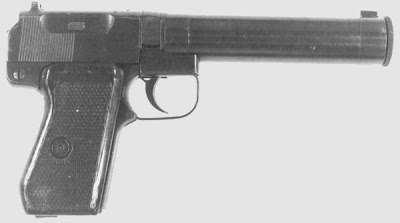
People's Republic of China Type 67 Silenced Pistol.
They lost Mark Smith on the first job of his team’s assigned list -- the General Counsel of the Federal Bureau of Investigation. It happened because the original plan to take him when he left Main Justice that day with his bodyguards went south when the Fibbies varied the exit and the route. They knew where they could catch up with him, and they also knew that if they didn’t get him there, they’d never have another easy chance at him, if at all.
Dobbin didn’t like improvisations, didn’t like the idea and knew it would turn into a personal disaster for one or both of them. “It’ll be like the goddam Wild Bunch in there, and there’s only two of us. What about the other jobs? “
“Screw ‘em. They won’t count for anything after this. Besides, two of the others on the list will be there, too. It’s a three-fer.”
“What about the guy you really want to kill? Because of your Dad? What about him?”
Mark Smith hesitated. “Fortner will make sure of him. Him above all. He won’t live out the week, even if I don’t make it.”
Dobbin had a choice. He could walk away right now, or he could back his partner’s play. The smart thing to do was walk away, dragging Mark Smith with him. Yet. . . He knew he couldn’t walk away. The idea made sense, in a crazy, suicidal sort of way. God knows the publicity would be ferocious. If they were interested in scaring the hell out of government lawyers, this would do it like nothing else. Walk away, his brain screamed.
No.
He would go, although he was sure he would die.
He sighed.
“We’d better bring all the mags.”
Mark Smith grinned. “Look, we go in, you cover me from the kitchen door while I go from table to table until we’ve got ‘em all. Then we boogie out the way we came.”
“There’ll be guards on the loading dock. FBI and hotel security,” Dobbin warned.
“Don’t worry, they’ll be easy.”
“Yeah, right,” muttered Dobbin.
“The immediate area is one of the most patrolled areas by DC Metro.”
“Yeah, I know. It’ll work.”
“Yeah, right.”
“It’ll work.”
It sounded more like a prayer than anything to Dobbin. OK, so let it work.
“All, right,” he said. “I’m in.”
Then, after a pause, “We’d better use the cop uniforms.”
“Good idea!” Now Mark sounded genuinely enthusiastic.
“C’mon, Raven,” said Mark Smith, “Let’s go kill us some big ass gubmint lawyers.”
The Office of General Counsel (OGC) provides high quality, timely, and comprehensive advice to the Director, other FBI officials and divisions, and field offices on all aspects of law, particularly in the areas of national security law, the Foreign Intelligence Surveillance Act (FISA) process, criminal investigative law, forfeiture law, information law and policy, procurement and contracting law, fiscal law and policy, and all areas of litigation to which the FBI is involved.
In addition to providing legal advice as requested, OGC reviews the legal sufficiency of sensitive Title III affidavits, ensures that electronic surveillance techniques are used in compliance with the FISA, and supports federal criminal prosecutions. OGC coordinates the defense of the FBI and its employees in civil actions which arise out of the FBI's investigative mission and personnel matters. OGC also provides quality legal training for the FBI, the National Academy, and other law enforcement groups. – FBI Employment Manual.The OGC Christmas party was held at the Capitol Hilton dining room that year. In keeping with the degraded security situation around the country, security would be tight, the guest list pared down to something manageable in the smallish venue. This would be just for the OGC brass and those of their significant others who wished to come. Not many did. Indeed, the wife of the head of the FISA Unit of OGC persuaded him at the last minute to stay home. He later would be grateful for her paranoia.
Still, it was downtown DC, in the middle of a capitol security apparatus whose every antennae was quivering, apprehending trouble. What could happen? Who would dare try anything at the Capitol Hilton?
A couple of ex-special operations guys pissed off at what had become of their country, that’s who.
The loading dock WAS easy. The uniforms and bulky winter coats of the DC police helped. They lulled the sentries and concealed the heavy artillery beneath. Dobbin was in the lead.
An FBI man held out his hand palm out indicating they should stop. “There’s a special event going on inside.”
“Yeah we know,” said Dobbin, “The FBI General Counsel’s Office Christmas party. We’ve been assigned as back-up.”
The FBI man relaxed, but only partly. “You two got ID?”
“Sure,” said Dobbin, and he reached into his coat, brought his out. So did Mark Smith. The names were phony, but the pictures and the cards were authentic. Nothing but the best for Wiley Fortner’s boys.
The FBI man peered at them, and again at their faces.
“Uh, OK, but just stand out here if you want. The inside is secure. We’ve got it handled.”
“Sure,” agreed Dobbin, “Nothin’ but another waste of time in the cold.” Smith blew on his hands, which positioned them near the top of his open overcoat.
The Fibbie looked at him sourly. “You know, there’s a whole lot of shit going on around this country if you haven’t noticed. So this is no ‘waste of time.’”
The Fibbie turned to go back inside. “Yeah it is,” said Smith to his back, then pulled one of Wiley Fortner’s gun collection samples from his coat, a Type 67 ChiCom integrally-silenced pistol, and put a 7.65mm slug in the Fibbie’s face as he turned around to argue. The other Fibbie came next, but he and the hotel dick were already down, courtesy of head shots from Fred Dobbins’ similar Type 63.
No time for hiding the corpses. This was a straight in blitz. The kitchen help stood where they were or got out of the way as what looked like two DC cops pushed their way inside. Dobbin, the bigger of the two, was in the lead. He kept saying “Excuse, us, folks,” as they encountered people just doing their jobs. There was a protective detail of two at the door leading to the Capitol Hilton dining room. They were bored, but alert. Cops? Their gun hands went inside their coats.
Fred Dobbin held out his hands where they could see them, one of them holding his DC Police ID, a smile on his face. Both of the protective detail, had their hands on their weapons, but the uniforms, the ID and the smile gave them pause for a half-second, long enough for Fred to suddenly turn to the side, revealing Mark Smith with his Type 67 who shot them both in the forehead before either could clear leather. They collapsed like sacks.
The waiter following in their wake with the Beef Wellington shouted in horror, dropped his tray with a crash and ran. Screams erupted behind them as they pushed through the swinging doors to the dining room beyond.
The people at the long tables immediately in front of the door would have had their backs to them, but the crash and the screams had them turning when Dobbin and Smith came into the room with suppressed MAC-10 submachineguns up and ready. One of the legal luminaries, the head of the Counterintelligence Law Unit, was pulling his own pistol when Mark Smith shot him with a short burst, and then, plans out the window, began firing in the target-rich environment, concentrating on the men.
Dobbin joined him, sweeping to the left, killing the General Counsel, the heads of the Counterterrorism Law Units I & II and the National Security Law Policy and Training Unit. Bodyguards in the rear tried to engage them, but were knocked aside by the stampede out the main doors and into the lobby beyond. Judy Garland was singing there, too, but couldn’t be heard over the pandemonium.
By the time the crowd had cleared, the shooters were gone, back the way they came.
Out the doors, down the dock and around the corner to the car, they had almost made it when a DC Metro unit pulled to a stop in the street and challenged them.
There was a shootout.
The DC cops lost it, but not before one of them put a slug in Mark Smith’s right thigh. It nicked the femoral artery. He was dead before the car got across the Key Bridge, the passenger side floor awash in his blood.
Behind them, counting the guards and the cops, they left fourteen dead. There were no wounded, which spoke to the Unit’s disciplined accuracy. Of the seven dead at the head table, only one was a spouse. The rest were the cream of the federal lawyerly priesthood.
The head of the FISA Unit, having been saved by his wife’s “paranoia” -- as he thought at the time -- was offered the acting General Counsel’s job. He not only turned it down, he quit his own and took his family to upper New York state where his wife’s parents had a farm where he lived, nervously, for some years afterward.
Hundreds of other federal lawyers followed his career choice, quitting their jobs as soon as it became clear that the real wages of their government paycheck might be death under the Law of Unintended Consequences. The federal regulatory enforcement machine ground to a screeching halt. Tens of thousands of court cases, enforcement actions, civil forfeitures and investigations were stopped in their tracks. Federal judges quit too, by the dozens, electing to get out of the line of fire until this Fourth Generation civil war was settled, one way or the other.
The war would go on, of course, without the lawyers. But increasingly it would be a war without the mask of legal fiction or pretense of legitimacy. It would be a war of the government against its people. Force on force. What the administration did next in Alabama sealed that truth in amber and presented it for the entire world to see. But that process began with the execution of an idea that two lawyers had, sitting in a Starbucks, when they decided to target their own oath-breaking brethren.
Until then, we'll have to muddle through somehow
So have yourself a merry little Christmas now.Epilogue: A Reckoning With Mark Smith’s Ghost.With Mark Smith dead and Dobbin’s face on every television screen, it was left to the other two DC teams to split up the target list, although some of them had simply disappeared after what the state-run media were calling “the Capitol Hilton Massacre.”
Wiley Fortner and Big Jon Thompson drew Mark Smith’s favorite target. Smith had been right. Fortner could not let this one get away.
They had stalked the man for two weeks when they finally arranged a meeting in an elevator.
William T. “Little Willy” McCann no longer believed he was untouchable, but he wouldn’t quit either. Actually, he was thinking about making an agency change for the better. With so many vacancies, what couldn’t a man who knew how to keep his head in crisis do for himself?
McCann now knew that Mark Smith was dead. His body had been found, delivered to a funeral home in Oshkosh. The FBI seized it “for forensic purposes,” and later cremated it, having learned nothing, but preventing Mark’s burial next to his father.
But something told him that Mark's ghost would somehow reach out and get him, for it was he, William McCann, who also had a hand in Harlan Smith’s death. That ghost would probably take the form of his brother Mike, and McCann, nervous as cat, watched for his arrival every minute of every day. He never went anywhere without a weapon, but somehow he knew that wouldn’t be enough.
But he wouldn’t quit. There was opportunity within his reach, or so he thought when the elevator door closed on him and two other men in a Georgetown apartment building.
Judy Garland was singing.
A new secretary, not believing the stories, had invited him up for “an evening at home.” He was about to get vicariously laid again, and so he pushed his fear to the back of his mind and thought with anticipation about the pulchritude that awaited him on the fourth floor.
He only got to three, actually, three and a quarter, when the seedy old man bundled in a tattered overcoat reached out and pushed the stop button. Strangely, the alarm didn’t ring. His hand went to his pocket where he kept the small automatic, but the big man to his right grabbed his arm before he could get there and slammed him up against the elevator wall and held him there, face into the paint and filigree, his arm twisted tight behind his back. The old man, with a strange light in eyes, relieved him of the pistol.
“My,” he said, “isn’t that cute?” said Wiley Fortner as he pocketed it.
McCann, thoroughly frightened by the turn of events, realized he was never going to make it to the fourth floor. But the old man gave him hope.
“OK, McCann, we’re going to let you go now. Keep your hands where we can see them and turn around slowly.”
The big man released him. For the first time McCann got a good look at him. Funny, he looked like a lawyer. The old man, on the other hand, looked like death.
McCann decided to try to bluster. “Who the hell do you think you are?”
“Me?” the old man said mildly. “Why I’m your recusationer.”
“What?” said McCann, not sure he’d heard right.
“I said, I’m your recusationer, asshole.” Then, speaking to big man, he said, “Recuse his ass.”
When the Big Jon finished with the sixteen round magazine of the RAB, pumping one silent round at a time, there wasn’t much left recognizable of William T. “Little Willy” McCann. The flying brass was caught in a soft cloth brass catcher attached to the ejection port, where it tinkled with each round.
The blood pooled quickly and the men stepped back toward the door to avoid it.
The old man pulled out the stop button and the elevator began to ascend once more. Pulling out a small paint brush with his gloved hand, he daubed it in McCann’s blood and painted “TOUCHABLE” in big letters on the side of the elevator. He then daubed again and added the final touch “Sincerely, Harlan and Mark Smith.” He threw the paint brush on the floor.
The elevator door opened. The secretary would be disappointed, but then, she would have been anyway.
Big Jon Thompson and Wiley Fortner made their way out of the building by the way they came in, the fire escape. There would be no surveillance pictures of them.
As they departed, Big Jon said to the old assassin, “You’re one twisted bastard, Wiley, you know that?”
Wiley Fortner just shrugged. “I always did like DePalma films.”
